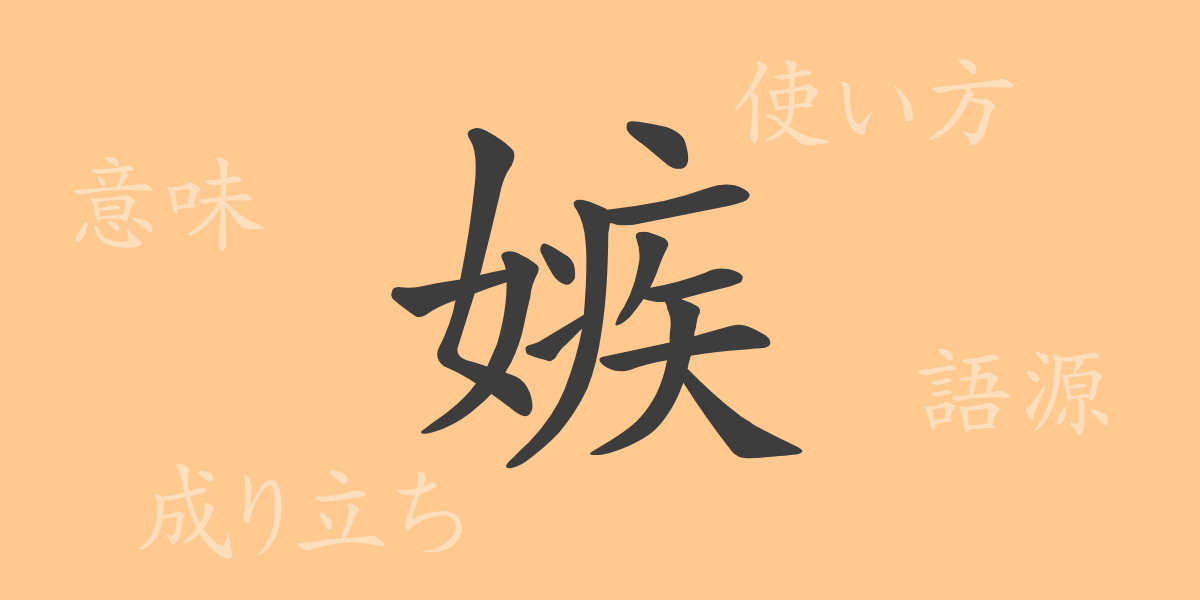The meanings and nuances of a single kanji character reflect the history and culture embedded within its form. The kanji “嫉(しつ)” is one of the commonly used characters in Japanese, yet its deep meanings and applications might not be widely known. In this article, we delve into the origins, meanings, usage, and readings of “嫉(しつ),” and explore idioms and proverbs that feature this character. Let us uncover the full spectrum of “嫉(しつ),” a kanji that symbolizes the beauty of the Japanese language.
Origins of 嫉 (Etymology)
The kanji “嫉(しつ)” consists of the radical “女(おんな)” meaning “woman” and the character “疾(しつ)” representing emotions. Originally, “疾(しつ)” meant “illness,” but in this context, it signifies intense emotions. Together, they depict a woman driven by strong emotions, thus “嫉(しつ)” came to mean “envy or jealousy.” In ancient China, this character expressed feelings of envy towards others’ success or fortune.
Meanings and Usage of 嫉
The kanji “嫉(しつ)” means “to envy” or “to be jealous” of another’s happiness, virtues, or success. It primarily conveys negative emotions, used to express jealousy or envy. For example, “嫉妬心(しっとしん)” or “嫉妬深い(しっとぶかい)” describe a heart filled with jealousy, unable to rejoice in others’ achievements, feeling discomfort by comparison.
Readings, Stroke Count, and Radical of 嫉
The kanji “嫉(しつ)” has multiple readings and a specific structure in Japanese.
- Readings: The on’yomi (音読み) is “シツ,” and the kun’yomi (訓読み) readings are “そね.む,” “ねた.む,” and “にく.む.”
- Stroke count: 13 strokes.
- Radical: The radical is “女(おんな),” representing “woman.”
Idioms, Phrases, and Proverbs Using 嫉
Idioms, phrases, and proverbs featuring “嫉(しつ)” are abundant in Japanese. Here are a few examples:
- 嫉妬(しっと): Envy towards others’ possessions, abilities, or status.
- 嫉妬心(しっとしん): Feelings of jealousy towards others’ happiness or success.
- 嫉視(しっし): Envious gazes; looking at others with jealousy.
- 嫉疾(しっしつ): Being jealous to the point of it being like a disease.
These expressions are used in daily conversations and literary works to depict human psychology, particularly the frequent use of “嫉妬(しっと)” to describe feelings of envy.
Conclusion on 嫉
The kanji “嫉(しつ)” is cherished in Japanese as a symbol of complex human emotions. Jealousy and envy, emotions that arise in human relationships, are aptly expressed by “嫉(しつ).” However, excessive jealousy can harm relationships, making it essential to understand this kanji and confront our feelings. This exploration of “嫉(しつ)” aims to deepen your understanding of this character’s profound nature and its role in the Japanese language.

























